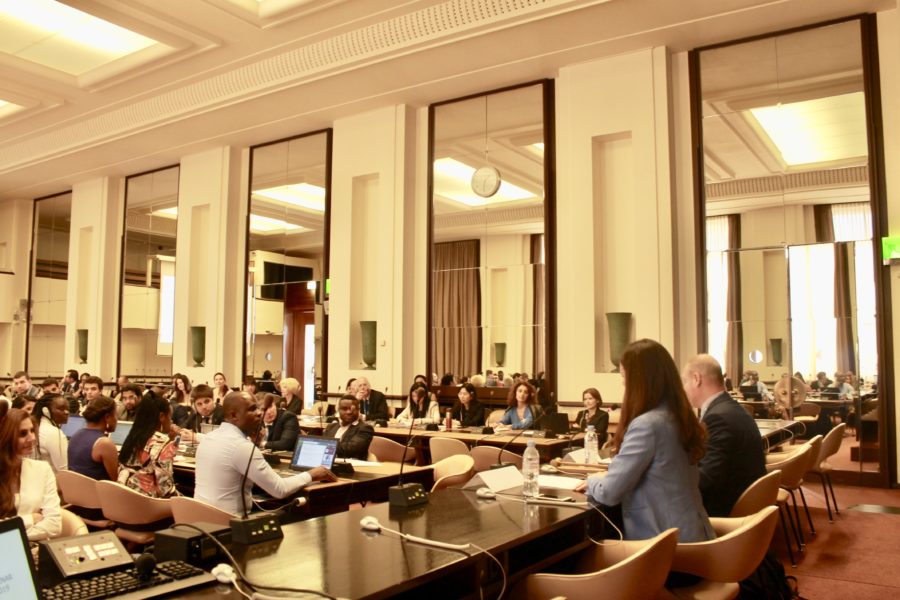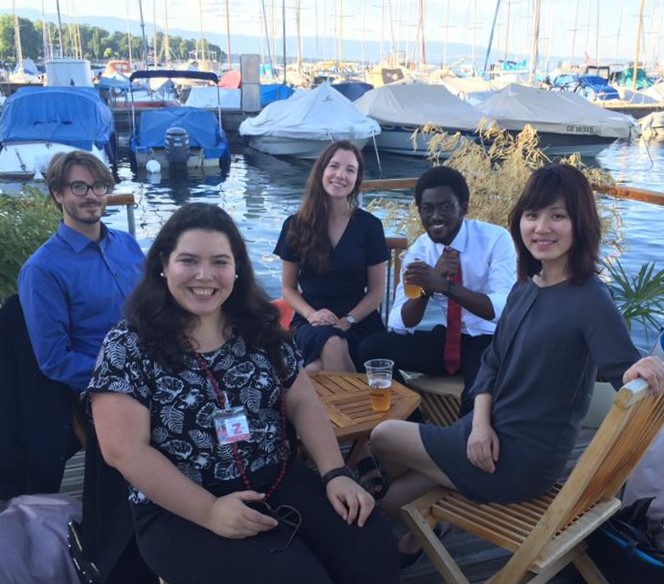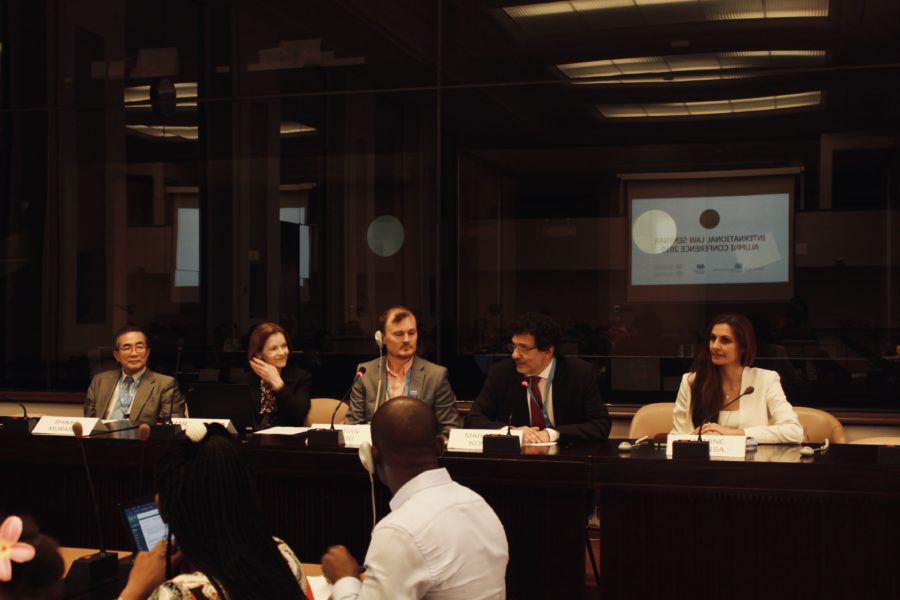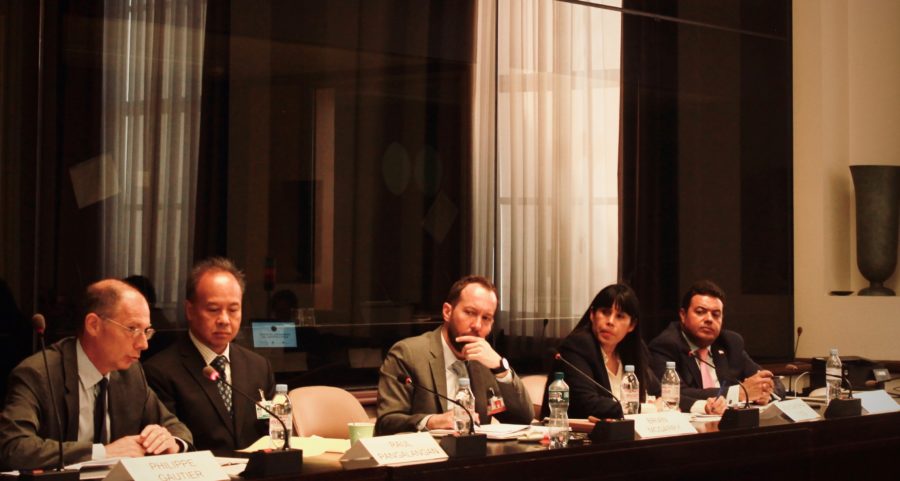6th August 2019 Geneva, Switzerland
Inaugural Conference for Alumni of UN International Law Seminar

Shortly before the summer break, I had the privilege of co-hosting at the Palais des Nations the first ever conference for the alumni of the UN’s International Law Seminar (ILS).
Since 1965, the ILS has been organised at the Palais to coincide with the session in Geneva of the International Law Commission (ILC). Every year around 25 young international lawyers, academics and diplomats, each from a different country, are chosen to participate in a three-week programme of seminars, discussion and research, interspersed with opportunities to listen to the plenary meetings of the ILC: 35 international legal experts, tasked by the UN General Assembly with the codification and progressive development of international law.
In 2017, I was lucky enough to be selected as the UK participant in the 54th session of the Seminar. At the time, I was a legal adviser in the Foreign and Commonwealth Office’s Legal Directorate in London. While I had participated in some international meetings, including at the Council of Europe and the European Union, the ILS was my first opportunity to spend a significant period with legal brains from other foreign ministries – including counterparts from Thailand, Togo, Bolivia and Egypt – and to learn how they approach international law.
It was also my first time in Geneva, the city I now call home. At the end of the first day in the Palais, I met up with an English friend who had just begun a diplomatic posting here: after ten overwhelming hours full of new faces, we made our slightly dazed way down the hill to Bains des Paquis; very Britishly pulled on our swimsuits; and stepped gingerly into what proved to be – then, and on many evenings since – the smooth, cooling water of Lake Geneva. After several sticky summers in London, I was astonished to find that refreshment just a stroll from the office. We capped off that sunny evening with the buvette’s legendary fondue, still in our swimmers.
The rest of the Seminar passed like a dream: mornings in building E, listening to the ILC members exchange on immunities and jus cogens; afternoons in the airy art deco environs of the UN library, reading into the rules of jurisdiction; and evenings at La Terrasse, cementing friendships.

I didn’t want the experience to end; luckily some of my classmates felt the same way. And in 2018, we founded the ILS Alumni Network, with a view not only to staying in touch with those from our session but also to establishing contact with those attending sessions before and since.
Fast forward to 19 July 2019 and we found ourselves back in the Palais, with around 100 other members from more than 50 different countries – ranging in vintage from this year’s participants to an alumnus of the second ever Seminar in 1966 (and subsequently a member of the ILC, 1985 to 1996), Prof. Christian Tomuschat, who kindly agreed to give the keynote speech.
The first panel, International Law and the Environment, featured Prof. Marja Lehto reflecting on the protection of the environment during armed conflict, with a focus on prevention through the rules of international humanitarian law, international human rights law and international refugee law; Dr. Jasmine Moussa arguing that the ILC should revisit the topic of international watercourses; Prof. Shinya Murase making the case for scientific experts to assist international judges; and Prof. Gentian Zyberi commenting on human rights and the environment, all ably moderated by Prof. Marcelo Kohen.

The second panel, Procedural Issues in International Dispute Settlement, featured Prof. Antonios Abou Kasm on the voluntary nature of international law; Monica Feria-Tinta on the procedural aspects of international claims and reparations; Dr. Philippe Gautier reflecting on the application of past ILC products by the International Tribunal for the Law of the Sea, of which he is Registrar; and the Hon. Raul Pangalangan on the shift from State responsibility to individual criminal responsibility, embodied by the International Criminal Court.

Negotiating resolutions and treaties in Geneva has taught me that international law is not a body of rules to be learned and applied, but rather the product of contest, cooperation and compromise. States may not always agree on the content of the rules, nor even on the process by which they may be adopted, but we engage in the debate because we believe in upholding an international order that is based on predictability and reciprocity.
For many participants, the UN International Law Seminar is their first encounter with the world in which these norms are developed. My hope for the Alumni Network is that it facilitates the continuation of that conversation between countries, between legal disciplines, and between generations.